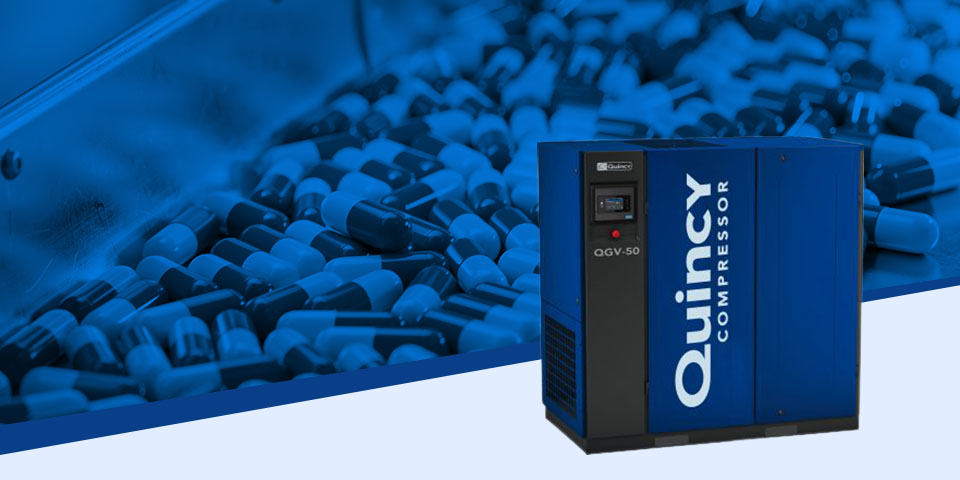Índice
Impulsores
Un impulsor es un componente giratorio con palas en una máquina. Transfiere energía de un motor a un fluido. A diferencia de una hélice, que funciona en fluido abierto para generar empuje con poca presión, un impulsor opera dentro de una carcasa para aumentar la presión.
¿Qué es un impulsor en compresores?
Un impulsor es una rueda con una serie de palas curvas dentro de un compresor centrífugo que transfiere energía al aire. Al girar a gran velocidad, atrae aire hacia su centro o ojo y lo acelera radialmente hacia fuera.
Esta rápida aceleración otorga una considerable energía cinética al aire. El aire de alta velocidad fluye hacia el difusor, un componente estacionario que lo ralentiza, convirtiendo la energía cinética en mayor presión.
Los impulsores pueden estar cubiertos o sin cubierta y fabricados con diferentes materiales. Preguntar sobre el diseño del impulsor al comprar proporciona información sobre el potencial de eficiencia energética, el rendimiento y la fiabilidad a largo plazo del compresor.
FAQs
El diámetro, la forma y la velocidad de una pala de un impulsor influyen significativamente en el caudal, la eficiencia y la relación de presión de un compresor. Los fabricantes diseñan un impulsor que cumple un objetivo de rendimiento específico con la máxima eficiencia posible.
- Diámetro: Un diámetro mayor podría resultar en un aumento de presión y caudal si se ajusta correctamente al resto del diseño del compresor para ser eficiente. Para la misma velocidad de rotación, los impulsores de gran diámetro tienen una velocidad de punta mayor porque sus filos recorren una mayor distancia en el mismo tiempo. La velocidad de la punta es la velocidad real del borde exterior de las palas del impulsor.
- Forma de la hoja: Esto incluye la curvatura, el ángulo y el número de palas. La mayoría de los compresores modernos utilizan un diseño de palas inclinado hacia atrás, lo que proporciona una entrega de aire suave y estable y resulta en una mayor eficiencia. Las palas de este diseño se curvan alejándose de la dirección de rotación y salen a menos de 90 grados. El número ideal de palas depende del rendimiento específico del compresor.
- Velocidad de rotación: Esta es la velocidad a la que el motor o la turbina hace girar el impulsor. Aumentar las revoluciones por minuto (RPM) incrementa la velocidad de la punta del impulsor, elevando la presión y el caudal. Es mejor hacer funcionar el impulsor en su punto de máxima eficiencia (BEP), donde acelera con la menor cantidad de energía desperdiciada. Ir demasiado rápido provoca un estrangulamiento, mientras que ir demasiado lento provoca una sobrecarga.
El aumento de presión es una condición inestable que ocurre a bajas caudales, en la que la presión del aire en la descarga es demasiado alta para que el impulsor la supere, provocando una inversión del flujo. Esto provoca vibraciones y posibles daños en el compresor.
Los principales signos observables de un impulsor dañado incluyen un aumento de la vibración, ruidos inusuales y una disminución notable de la presión y el flujo. Durante una inspección visual, los signos físicos de daño incluyen grietas, picaduras, desgaste de las hojas y desconchados.
Un impulsor puede fallar debido a daños causados por tuercas y tornillos sueltos y fragmentos de un filtro de aire defectuoso. Otras causas incluyen corrosión causada por reacciones químicas con factores ambientales, desequilibrio derivado del desgaste desigual y fatiga del material debido a ciclos repetidos de carga y descarga.
El mantenimiento rutinario consiste en inspeccionar el impulsor para detectar daños y limpieza. El técnico debe eliminar cuidadosamente cualquier acumulación o escombro para mantener el equilibrio y el rendimiento. El mantenimiento también debe incluir el reequilibrio o el reemplazo si el impulsor está dañado.
Daños menores, como pequeños cortes, podrían ser reparables. Sin embargo, las grietas y el desgaste importante suelen requerir el reemplazo del impulsor para garantizar un funcionamiento seguro y eficiente del compresor.
La frecuencia óptima de inspección de un impulsor de compresor depende de las recomendaciones del OEM, el entorno operativo y la criticidad operativa del activo.
Generalmente, se recomienda el seguimiento diario, ya que permite comprobar si hay vibraciones o ruidos inusuales. También es importante realizar una inspección anual o semestral con un boroscopio, mientras que una inspección integral importante que implica el desmontaje del compresor suele realizarse cada tres a cinco años.
Recursos adicionales
En Quincy, nuestro objetivo es apoyarte y el verdadero apoyo significa conectarte con recursos que mejor se adapten a tus necesidades.



